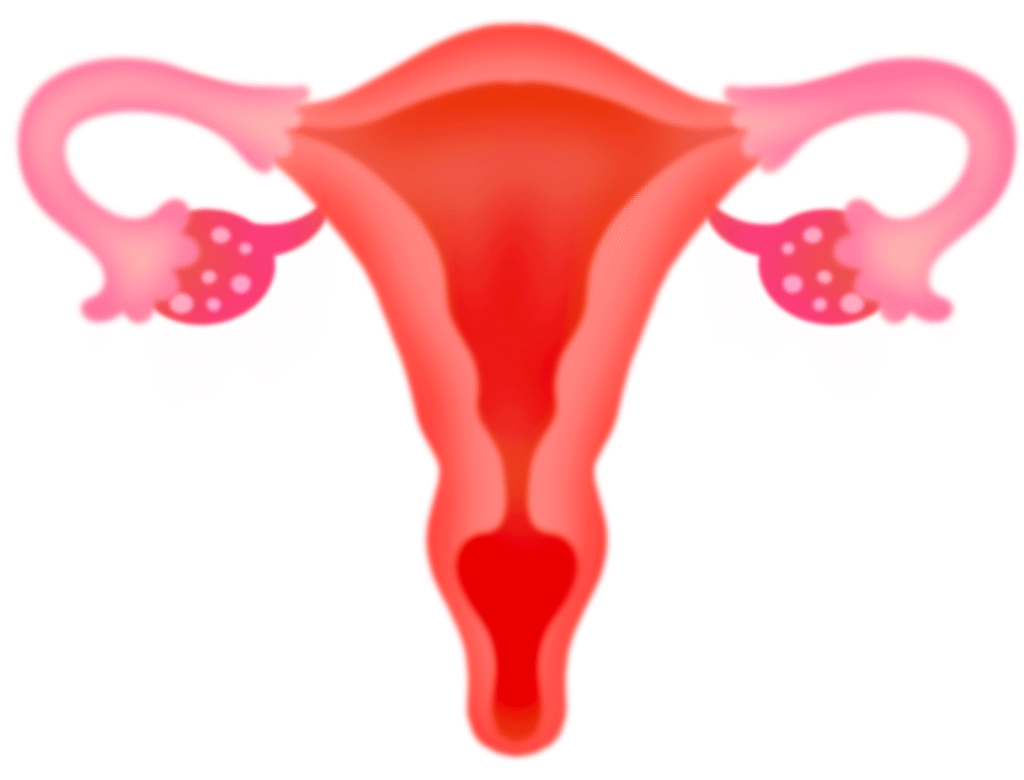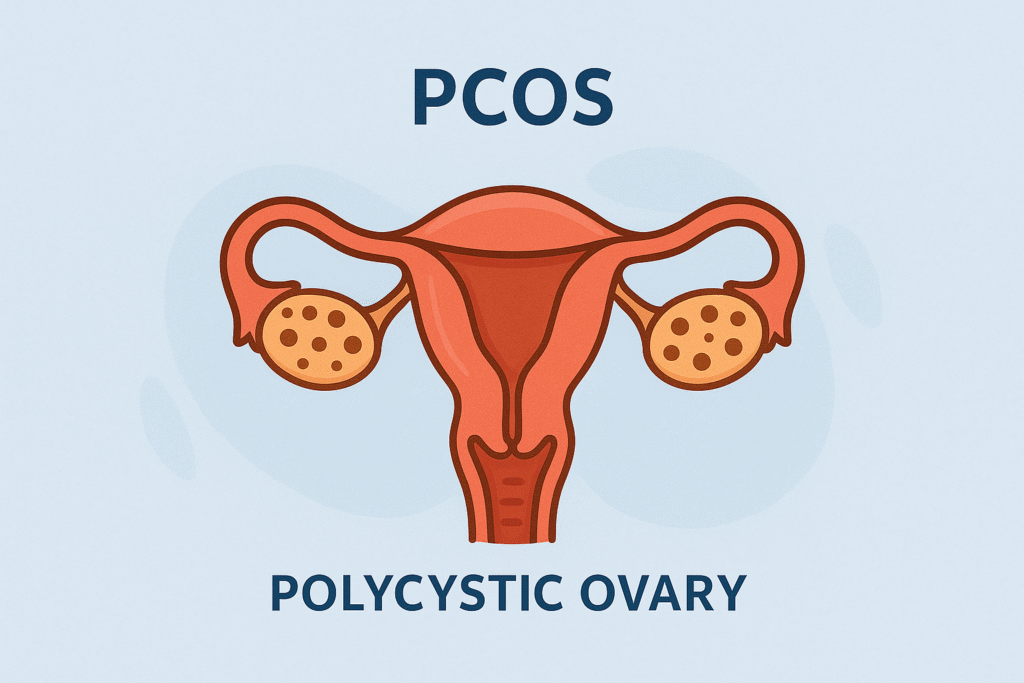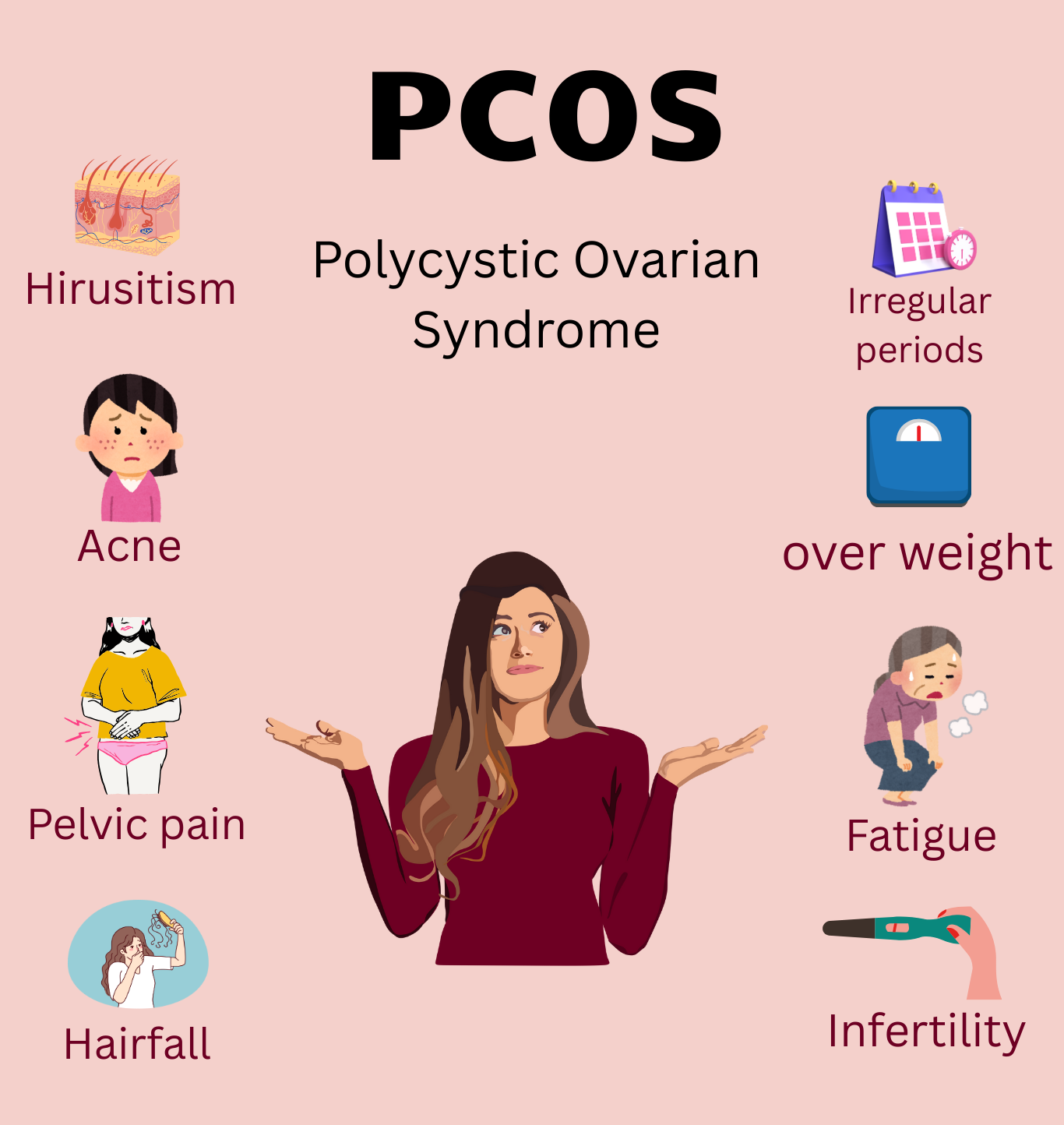Table of Contents
PCOS, or Polycystic Ovarian Syndrome, affects millions of women in the whole world. From irregular periods to hormonal imbalances, it can feel overwhelming — but you are not alone, and it is manageable.

What is Polycystic Ovarian Syndrome?
Easy explanation.
Affect on reproductive hormones, ovaries, and periods.
Cause
Excessive androgen production by the ovaries mainly.
Genetic factors
Inflammation
Insulin resistance
Stress and needy lifestyle
Types of Polycystic Ovarian Syndrome
1. Insulin-resistant Polycystic Ovarian Syndrome
2. Post-pill Polycystic Ovarian Syndrome
3. Adrenal Polycystic Ovarian Syndrome
4. Inflammatory Polycystic Ovarian Syndrome
PCOS vs PCOD: What’s the Difference?
Bullet points
PCOD is very common and less severe
PCOS is a hormonal disorder with long-term effect
Common Symptoms
Irregular or missed menses
Weight gain or difficulty in weight loss
Oily skin or acne
Unwanted facial hair
Hair thinning
Infertility
Mood swings
Natural Remedies for Polycystic Ovary Syndrome

1. Diet and Nutrition
Superfoods, low-sugar, anti-inflammatory
2. Exercise & Movement
30–45 mins walk/yoga every day
3. Herbs and Supplements
Spearmint tea
Cinnamon
Inositol
4. Management of Stress
Sleep, journaling, prayers, breathing
Avoid blue light before bed
Complications If Left Untreated
Endometrial cancer
Infertility
Diabetes
Depression
Sleep apnea
Diagnosis
Based upon the presence of any two of the following three criteria:
•Oligo and/or anovulation
•Hyperandrogenism
•Polycystic ovaries
Other
•Congenital adrenal hyperplasia
•Thyroid dysfunction
•Hyperprolactinemia
•Cushing syndrome
Investigations
•Sonography
•Serum values
•Insulin resistance
•Laproscopy
•Lipid profile
•Glucose tolerance test
Treatment
•Obesity and metabolic syndrome: exercise, diet, change in lifestyle
•Subfertility: ovulation indication→ letrizole, ± metformin, ± gonadotropins.
•Abnormal uterine bleeding: progestins, combine oral contraceptives( COCs).
•Body hair: androgens, COCs.
FAQ Section
Q1. Can Polycystic Ovarian Syndrome be cured permanently?
No, but symptoms can be reversed with lifestyle management.
Q2. Is pregnancy possible with Polycystic Ovarian Syndrome?
Yes, but it may take very much effort and support.
Q3. What foods should I escape?
Processed sugar, dairy, and refined carbs.
Q4. Can Polycystic Ovarian Syndrome cause mood swings?
Yes, due to hormonal imbalance.
Q5. Is polycystic ovarian syndrome common?
Yes. 1 in 10 women globally have PCOS.
Conclusion
Living with Polycystic Ovarian Syndrome is challenging, but with the right lifestyle and awareness, you can regain control of your health.
Have a story or question about polycystic ovarian syndrome PCOS? Share it in the comments below!
